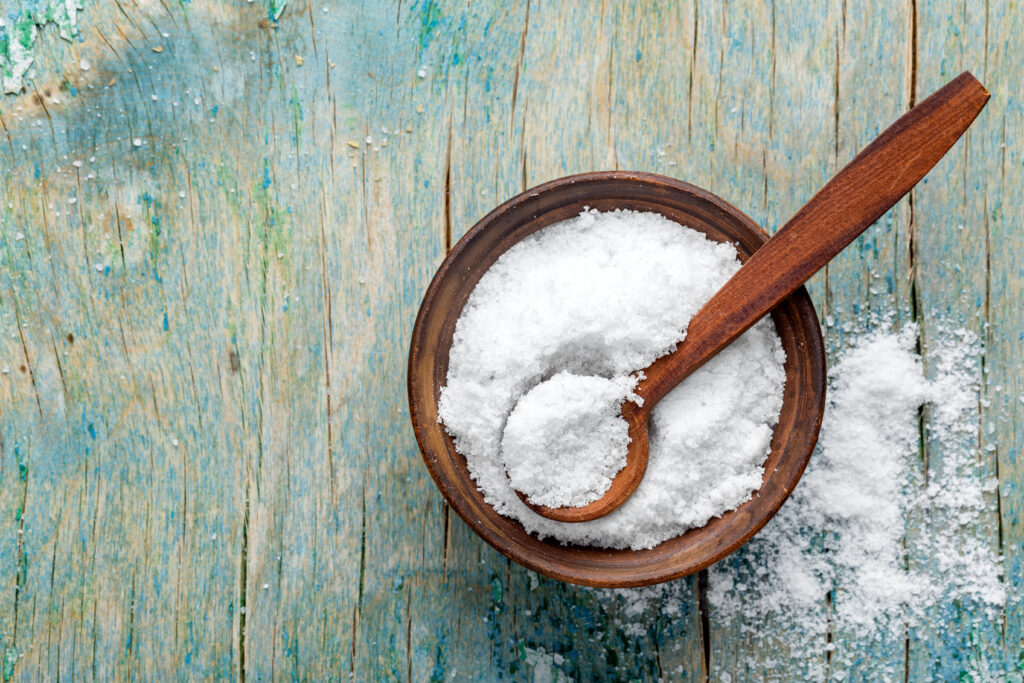
Salt is essential for a myriad of physiologic functions, but if we eat too much it can have some undesirable side effects. These include puffiness, frequent urination and dehydration.
Many people don’t even know they’re eating too much salt, as a lot of it is hidden in ready meals, bacon, canned soups and breakfast cereal.
Frequent Urination
Frequent urination -- the need to pee frequently, which affects both men and women -- is a common sign that your body has too much sodium. This happens because your kidneys are unable to hold the excess water in your bladder.
Drinking too many fluids, especially fluids with alcohol or caffeine, can also cause you to urinate more often. This is because these drinks act as diuretics, causing you to lose more fluids.
If frequent urination is a persistent problem that interferes with your quality of life, talk to your doctor about it. They can help you find the source of the issue, which may include a urinary tract infection or other serious underlying health condition. Treatment can reduce symptoms and prevent complications like kidney damage.
Constant Thirst
If you're thirsty all the time, it could be a sign that your sodium intake is excessive. Salt draws water out of cells, triggering your body to guzzle lots of fluids in an attempt to get back to normal.
In the long run, this can cause dehydration and can lead to severe headaches if left unchecked.
It can also mean that you're not getting enough natural sources of potassium, which is essential for normal kidney function. In addition, consuming too much sodium can cause swelling of the fingers or ankles (a condition called edema). It's also been linked to high blood pressure.
Feeling Bloated
Eating too much salt in a single meal or over the course of a day can cause bloating. This occurs because the kidneys seek to maintain a sodium-to-water ratio in the blood. In order to do this, they hold on to water and your body will swell up.
Drinking plenty of water can help you get rid of the bloat, especially if you are dehydrated. However, if you continue to feel bloated, it may be worth chatting with your doctor.
While bloating is common, it can be serious. It may be a sign of hyponatremia, which is caused by severe salt loss due to vomiting, diarrhoea, or sweating. This condition can lead to shock, coma, or death. If you notice this, seek emergency medical attention immediately.
Nausea
Salt causes the body to retain water which makes you feel bloated or puffy. The fluid build up also leads to high blood pressure and may cause heart failure. Severe loss of salt due to vomiting, diarrhoea or sweating can lead to a condition called hyponatremia. Symptoms include nausea, bloating and headaches. Symptoms of hyponatremia are similar to those of dehydration and can be fatal.
If you are waking up during the night to visit the bathroom, it could be a sign that you are consuming too much salt. Frequent trips to the toilet could also indicate that you have a urinary tract infection or type 2 diabetes.
It is recommended to avoid foods with added salt and look for less processed, fresh foods. However, it is important to remember that there are still hidden sources of salt in many foods so check labels carefully.
Headaches
A common short-term side effect of too much salt is a constant headache. This is caused by the build-up of water in the cells and a subsequent imbalance of electrolytes. Drinking a lot of water can help relieve these symptoms.
Some foods high in sodium don’t taste particularly salty, which is why it’s important to check food labels and make sure you’re consuming less than recommended levels of salt. You can also experiment with other ways of adding flavor to food such as lemon juice, fresh herbs and spices.
If your headaches persist, it’s worth seeing a doctor. They may recommend that you keep a headache diary and try to identify any triggers. This could include a number of factors such as lack of sleep, medication or an underlying health condition like a brain tumour.

.jpg)